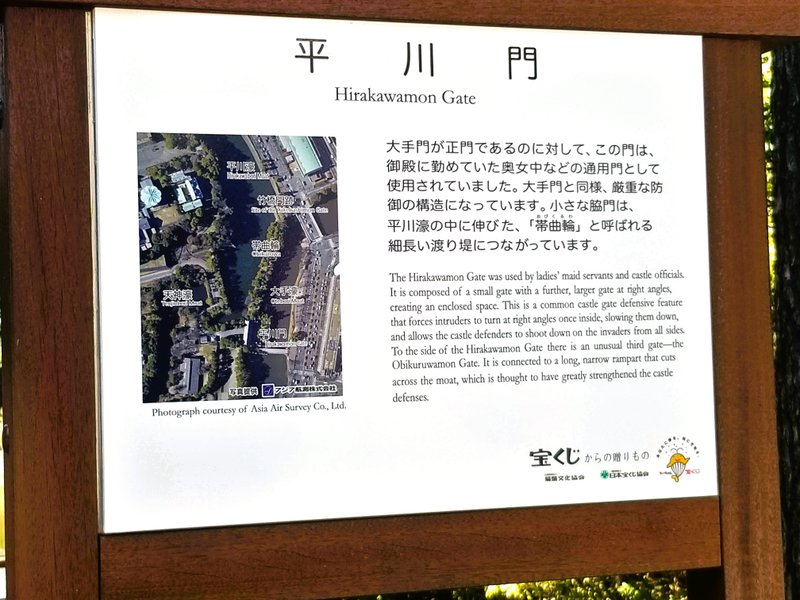
将軍はマーケティングのプロ?
「泣かせろ」チャレンジ 2日目:これも失敗(ネタバレはしませんが最後のシーンにやられました(笑))
Make Me Cry Challenge Day 2: also a fail (no spoilers but the last scene got me)
https://www.youtube.com/watch?v=5fiw9j8AIYE
今回は、悲しいCMを観ました。このCMを観て、マーケティングが私たちの感情をもてあそぶことを思い出しました。
This time, I watched a sad commercial. I’m going to go off on a slight tangent, but this reminded me of how marketing plays with our emotions.
将軍と庶民の距離感
学校の日本史では、日本は昔外からの物やアイディアをあまり受け入れない鎖国状態だと学びました。しかし、国内でも社会層に分かれていて、将軍に会えるまでいくつもの(実物の・比喩的な)壁があったそうです。
As some of us may have learned in World History, Japan was once a very closed-off country, hardly letting in ideas and people from outside their borders. However, there were also class divisions within Japanese society, with many (literal and figurative) walls between the shogun (the leader, as the emperor was just a figurehead) and the rest of the population.
(note: the Edo period capital was in Kyoto, but I included images from the Imperial Palace in Tokyo, which became the designated capital during the Meiji Restoration. The concept of security/social classes can be seen in this “Tokyo” capital as well)

江戸時代の地図:山の手と下町
この傾向は江戸時代の地図(上記URL)を見ればわかります。皇居は、大きな壁に囲まれ、守られています。もう一つよく上げられる上流と下流階級の違いとしては、上流階級の者は「山の手」という坂の上の場所に住み、下流階級の者は、地形的に低い「下町」に滞在していました。つまり、山の手の上流階級の者は実際に「目上」のポジションから、下町の人々を見下ろし、下町の者は上流階級の人々が住むところに行くには、実際に「上り坂の戦い」という状況でした。
This can be seen in the Edo map (https://www.jstor.org/stable/43196947 see pg. 1537) , where the imperial palace is heavily protected by surrounding walls. Another commonly noted distinction between the upper and lower classes during this period was that the higher ups mostly lived in the Yamanote regions (yama meaning “mountain”) on hills, overlooking the lower class residences located downhill in the Shitamachi (“low city”) . Therefore, it was literally an uphill battle for any lower class members of society to get near the heavily-guarded, prestigious members of the upper class, which–both literally and figuratively–looked down on them.

「儲ける」のは「信じられる者」
将軍に近づくまでにたくさんのステップがかかったように、今までのマーケティングもブランドの代表と顧客の間にいくつもの障害物を設置し、代表をより魅力的でかつ簡単に届かないほど高いところにいる存在だという戦略を取っていました。この資格重視社会では、実績がある者こそ信頼感を抱くことができ、顧客も商品を買ってもらえたのです。(英語版には、1ページの履歴書に書けないほどの実績があったら~と書いてます)
最近学んだ面白い漢字の由来は、「儲ける」のは「信じられる」「者」。今まで金儲け(スラングでパン)ができる人は、人を惹きつけ、信用してもらえるカリスマがある者でした。(言語学専攻の私はこれに食いつきました(笑))
Just like how it took someone many steps to reach the shogun, up until recently, marketing involved building many obstacles between the brand head and customers, putting them on a pedestal to make them seem “impressive” or “unreachable.”
If you had too many achievements to fit on a one-page resume (not that resumes existed back then, as far as I know), you were considered trustworthy and people would buy your product.
Something I found quite intriguing is that the Japanese kanji 儲ける (meaning “to earn money”) is made up of the kanji 信じる (to believe) and 者 (person). Someone who possesses the charisma to attract people and make them believe in him/her has mastered the marketing strategy that brings in the bread 🍞🍞. (as a ling major I ate this up haha)

SNSの傾向
今では、マーケティングやSNSは共感や親しみやすさへ方向性が変わってきています。多くのユーチューバーがこのように成功を手に入れています。例えば、あなたが大学生であれば、他の「バイブ」の合う大学生ユーチューバーを見るかもしれません。ユーチューバーと一般人が多くの共通点を持ち、ユーチューバーも自分のダメなところや弱さを見せる時代になってきています。
昔の完璧な、オールラウンダーユーチューバー・インスタグラマーの典型は崩れ始めています。これは特にZ世代のインフルエンサーの行動で見えてきています。より多くのインフルエンサーは自分たちと一般人の距離を縮め、以前の完璧さを表す「演技」を徐々に「人間性」や「リアル」な面に変えて行っている傾向が見えます。
Nowadays, marketing and social media are beginning to shift their focus to empathy and relatability. Many YouTubers have succeeded in this way - if you’re a college student, maybe you watch other college student YouTubers because you “vibe” with them - you share commonalities, and they show you their imperfections and vulnerabilities.
The picture-perfect, all-around YouTuber or Instagrammer model is beginning to break down, especially for the Gen Z population. More and more influencers are closing the distance between themselves and the public, showing a more human or “real” side rather than putting up an act.

これは世間にとってどういうことか
私たちは徐々に実績から人間性に目を向け、この理由でインフルエンサー(というよりかは、SNS上の「誰でも」--1万人以上のフォロワーがいなくても)に好意を持ったり、尊敬したりしています。この傾向は、誠実さを促進しつつ、我々の抜けている部分もより受け入れやすくしているので、私は良いことだと思っています。
We are beginning to look up to or feel drawn to influencers (or more like anyone on social media - they don’t have to have a million followers) for their human qualities, rather than for their achievements. I think this is a positive trend, as it encourages honesty, as well as acceptance of our imperfections.
反対の意見を持っていても(いや、持っていたら特に!)是非、ご意見をお聞かせください。😌
Feel free to share your thoughts - even (especially) if you disagree with me
( 最後に、ご教授頂いた皆様、ありがとうございました。And lastly, I would like to thank those who taught me this fascinating information!)
ここまで読んで頂き、ありがとうございました。
是非、新しく学んだ単語などをコメントに書いて頂ければと思います。
↓ 上級英語や日常的に使われるイディオムを学びたい方はこちらをclick ↓
Instagram: https://www.instagram.com/danasensei_eikaiwa/
YT: https://www.youtube.com/channel/UCtik-TcTlK5oLqWWY_jfs5A
この記事が気に入ったらサポートをしてみませんか?
